 W
WCommunity organizing is a process where people who live in proximity to each other or share some common problem come together into an organization that acts in their shared self-interest.
 W
WActivism consists of efforts to promote, impede, direct, or intervene in social, political, economic, or environmental reform with the desire to make changes in society toward a perceived greater good. Forms of activism range from mandate building in the community, petitioning elected officials, running or contributing to a political campaign, preferential patronage of businesses, and demonstrative forms of activism like rallies, street marches, strikes, sit-ins, or hunger strikes.
 W
WActivism consists of efforts to promote, impede, direct, or intervene in social, political, economic, or environmental reform with the desire to make changes in society toward a perceived greater good. Forms of activism range from mandate building in the community, petitioning elected officials, running or contributing to a political campaign, preferential patronage of businesses, and demonstrative forms of activism like rallies, street marches, strikes, sit-ins, or hunger strikes.
 W
WThe Advancement Project is a politically liberal American nonprofit organization that focuses on racial justice issues. The organization has a national office in Washington, D.C., as well as a California-specific office based in Los Angeles.
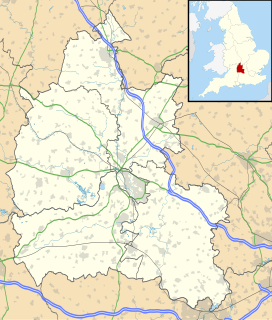 W
WAlice's Meadow is the name given to a small field in the Oxfordshire parish of Fencott and Murcott, England. It became the focus of a campaign by local people and Friends of the Earth in the 1980s, who opposed government plans to route the M40 motorway across Otmoor.
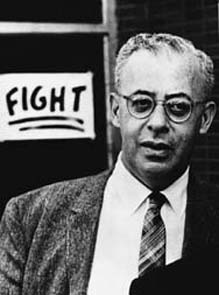 W
WSaul David Alinsky was an American community activist and political theorist. His work through the Chicago-based Industrial Areas Foundation helping poor communities organize to press demands upon landlords, politicians and business leaders won him national recognition and notoriety. Responding to the impatience of a New Left generation of activists in the 1960s, in his widely cited Rules for Radicals: A Pragmatic Primer (1971) Alinsky defended the arts both of confrontation and of compromise involved in community organizing as keys to the struggle for social justice.
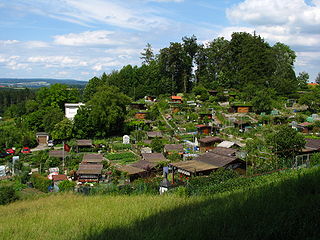 W
WAn allotment garden, often called simply an allotment, or in North America, a community garden, is a plot of land made available for individual, non-commercial gardening or growing food plants. Such plots are formed by subdividing a piece of land into a few or up to several hundred parcels that are assigned to individuals or families. Such parcels are cultivated individually, contrary to other community garden types where the entire area is tended collectively by a group of people. In countries that do not use the term "allotment (garden)", a "community garden" may refer to individual small garden plots as well as to a single, large piece of land gardened collectively by a group of people. The term "victory garden" is also still sometimes used, especially when a community garden dates back to the First or Second World War.
 W
WThe Battle of Brightlingsea refers to a series of protests by animal rights supporters held in Brightlingsea, England, between 16 January and 30 October 1995, to prevent the export of livestock through the town. During this time period, early 1990s, this action had been talked and argued about among individuals. The name was first used by the media in The Independent newspaper, after Essex Police used riot control measures against demonstrators.
 W
WA boycott is an act of nonviolent, voluntary and intentional abstention from using, buying, or dealing with a person, organization, or country as an expression of protest, usually for moral, social, political, or environmental reasons. The purpose of a boycott is to inflict some economic loss on the target, or to indicate a moral outrage, to try to compel the target to alter an objectionable behavior.
 W
WBuycott.com is an Internet-based platform and smart-phone application that reads the Universal Product Codes (UPC) barcode on a product, and suggests whether a consumer should buy or avoid that product based on how well it aligns with the consumer's values and principles. The consumer joins to various Buycott campaigns to indicate their support or their opposition to various issues and topics. The app advises them about purchasing from corporate entities - and their affiliates - that endorse policies which conflict with those campaigns. The consumer can thus "vote with their wallet", and opt to purchase a competing product, or forgo the purchase altogether.
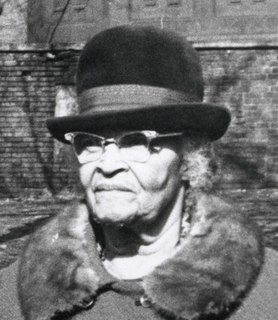 W
WMelnea Agnes Cass was an American community and civil rights activist. She was deeply involved in many community projects and volunteer groups in the South End and Roxbury neighborhoods of Boston and helped found the Boston local of the Brotherhood of Sleeping Car Porters. She was active in the fight to desegregate Boston public schools, as a board member and as president of the Boston chapter of the National Association for the Advancement of Colored People (NAACP). As a young woman, Cass also assisted women with voter registration after the passage of the Nineteenth Amendment. She was affectionately known as the "First Lady of Roxbury."
 W
WChoose Love is a UK-based non-governmental organization (NGO) which provides humanitarian aid to, and advocacy for, refugees around the world. In 2016, it became the largest grassroots distributor of aid in Europe.
 W
WCivic engagement or civic participation is any individual or group activity addressing issues of public concern. Civic engagement includes communities working together or individuals working alone in both political and non-political actions to protect public values or make a change in a community. The goal of civic engagement is to address public concerns and promote the quality of the community.
 W
WCivil disobedience is the active, professed refusal of a citizen to obey certain laws, demands, orders or commands of a government, corporation or other authority. By some definitions, civil disobedience has to be nonviolent to be called "civil". Hence, civil disobedience is sometimes equated with peaceful protests or nonviolent resistance.
 W
WThe 1954–1968 civil rights movement in the United States was preceded by a decades-long campaign by African Americans and their like-minded allies to end legalized racial discrimination, disenfranchisement and racial segregation in the United States. The movement has its origins in the Reconstruction era during the late 19th century, although it made its largest legislative gains in the mid-1960s after years of direct actions and grassroots protests. The social movement's major nonviolent resistance and civil disobedience campaigns eventually secured new protections in federal law for the human rights of all Americans.
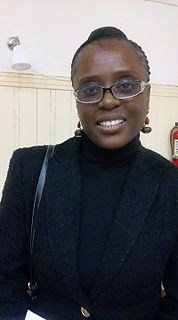 W
WCordell Cleare is an American activist and politician from Harlem, New York City. A member of the Democratic Party, she has been politically active in Harlem since the late 1990s and is currently the state-senator elect for New York's 30th State Senate district.
 W
WCommunitarianism is a philosophy that emphasizes the connection between the individual and the community. Its overriding philosophy is based upon the belief that a person's social identity and personality are largely molded by community relationships, with a smaller degree of development being placed on individualism. Although the community might be a family, communitarianism usually is understood, in the wider, philosophical sense, as a collection of interactions, among a community of people in a given place, or among a community who share an interest or who share a history. Communitarianism usually opposes extreme individualism and disagrees with extreme laissez-faire policies that neglect the stability of the overall community.
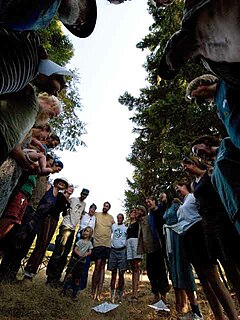 W
WCommunity mobilization is an attempt to bring both human and non-human resources together to undertake developmental activities in order to achieve sustainable development.
 W
WConsensus decision-making or consensus politics is group decision-making processes in which participants develop and decide on proposals with the aim, or requirement, of acceptance by all. The focus on establishing agreement of the supermajority and avoiding unproductive opinion, differentiates consensus from unanimity, which requires all participants to support a decision.
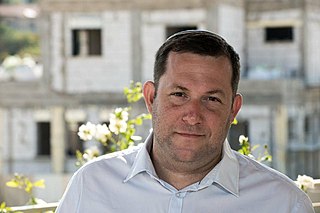 W
WYossi Dagan is an Israeli activist and politician who has been the head of the Shomron Regional Council since August, 2015.
 W
WDecolonize This Place is a movement based in New York City that organizes around Indigenous rights, black liberation, Palestinian nationalism, de-gentrification, and economic inequality. Their actions often take place at museums and cultural institutions and focus on colonialist tendencies within the art world.
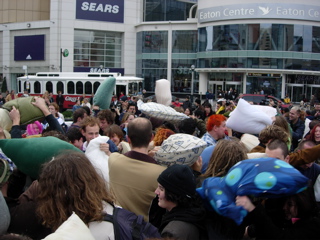 W
WA flash mob is a group of people who assemble suddenly in a public place, perform for a brief time, then quickly disperse, often for the purposes of entertainment, satire, and artistic expression. Flash mobs may be organized via telecommunications, social media, or viral emails.
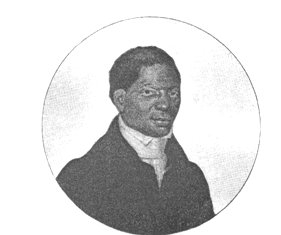 W
WStephen Gloucester (1802–1850) was among the primary organizers for the Underground Railroad in Philadelphia.
 W
WA grassroots movement is one that uses the people in a given district, region, or community as the basis for a political, social or economic movement. Grassroots movements and organizations use collective action from the local level to effect change at the local, regional, national, or international level. Grassroots movements are associated with bottom-up, rather than top-down decision making, and are sometimes considered more natural or spontaneous than more traditional power structures.
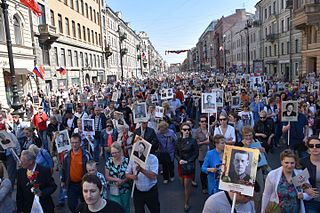 W
WThe Immortal Regiment is a massive civil event staged in major cities in Russia and around the world every 9 May during the Victory Day celebrations. It is also a public non-profit organization, created in Russia on a voluntary basis with the aim of "immortalizing" the memory of home front workers, armed forces service personnel, partisans, personnel of resistance organizations, and personnel of law enforcement and emergency services. It involves people carrying on the memory of war veterans, with participants carrying pictures of relatives and/or family friends who served in the country's labor sector, paramilitary units, the Soviet Armed Forces and law enforcement organizations during the Second World War.
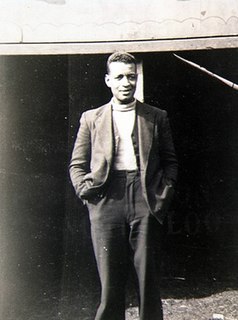 W
WLeonard Benker Johnson, known simply as Len among his admirers, and dubbed "Len Johnson" by the press, was a British boxer who competed from 1920 to 1933. He held the British Empire middleweight title, the first non-white boxer to hold a major title during the British colour bar era, de facto reigning from 20 February 1926 to 12 July 1926. He also held the Northern Area championships at middleweight and light-heavyweight, respectively. A strategic and intelligent boxer, Johnson was considered to be one of the best middleweights of his era. He was known for his exceptional boxing skill, using an educated left-hand, as well a slippery defence that made him difficult to hit, while leaving his features largely unmarked throughout his thirteen-year career. Additionally, Johnson possessed a very long reach and rather good height.
 W
WThe Mau was a non-violent movement for Samoan independence from colonial rule during the first half of the 20th century. Mau means ‘resolute’ or ‘resolved’ in the sense of ‘opinion’, ‘unwavering’, ‘to be decided’, or ‘testimony’; also denoting ‘firm strength’ in Samoan. The motto for the Mau were the words Samoa mo Samoa. Similarly in Hawaiian Mau means to strive or persevere, and is often linked with Hawaiian poetry relating to independence and sovereignty struggles.
 W
WThe National Alliance of Latin American and Caribbean Communities (NALACC) is a network of approximately 75 community-based organizations led by Latin American and Caribbean immigrants. NALACC member organizations are working to improve quality of life in their communities, both in the United States and in countries of origin. NALACC seeks to build transnational leadership capacity and increase immigrant civic participation, so that immigrants can advocate effectively for public policies that address the root causes of migration, as well as addressing the challenges faced by immigrants in the United States. To date, this latter work has focused on efforts to reform US immigration policies to make them more humane and effective.
 W
WThe No Pants Subway Ride aka Ride The Train Naked Day is an annual event where people ride rapid transit or subway while they are not wearing pants. Beginning in New York in 2002, the event spread to as many as sixty cities as of 2013.
 W
WNonviolent resistance (NVR), or nonviolent action, is the practice of achieving goals such as social change through symbolic protests, civil disobedience, economic or political noncooperation, satyagraha, or other methods, while being nonviolent. This type of action highlights the desires of an individual or group that feels that something needs to change to improve the current condition of the resisting person or group.
 W
WThe Occupy movement was an international left-wing populist socio-political movement that expressed opposition to social and economic inequality and to the lack of "real democracy" around the world. It aimed primarily to advance social and economic justice and new forms of democracy. The movement has had many different scopes, since local groups often had different focuses, but its prime concerns included how large corporations control the world in a way that disproportionately benefits a minority, undermines democracy and causes instability.
 W
WRosa Louise McCauley Parks was an African-American activist in the civil rights movement best known for her pivotal role in the Montgomery bus boycott. The United States Congress has honored her as "the first lady of civil rights" and "the mother of the freedom movement".
 W
WThe Peace Development Fund is a non-profit public foundation, based in Amherst, Massachusetts. Its mission statement describes it as working "to build the capacity of community-based organizations through grants, training, and other resources as partners in the human rights and social justice movements.
 W
WA penny auction is a collective action taken during the auction of a foreclosed property to force the sale of the property at a low price, with the intent of then returning the property to its previous owner. The process—usually achieved with a combination of intimidation, threats, and physical force—effectively circumvents foreclosure by forcing the lender to relinquish the property without an opportunity to recuperate the balance of the loan.
 W
WThe People's Library, also known as Fort Patti or the Occupy Wall Street Library, was a library founded in September 2011 by Occupy Wall Street protesters in lower Manhattan's Zuccotti Park located in the Financial District of New York City. It was temporarily evicted when Zuccotti Park was cleared on November 15, 2011, during which time 5,554 books were thrown away by the New York City Police Department. In April 2013, the Government of New York City was ordered to pay $366,700 for the raid, which was found to have violated the protesters' First, Fourth and Fourteenth Amendment rights.
 W
WPicketing is a form of protest in which people congregate outside a place of work or location where an event is taking place. Often, this is done in an attempt to dissuade others from going in, but it can also be done to draw public attention to a cause. Picketers normally endeavor to be non-violent. It can have a number of aims, but is generally to put pressure on the party targeted to meet particular demands or cease operations. This pressure is achieved by harming the business through loss of customers and negative publicity, or by discouraging or preventing workers or customers from entering the site and thereby preventing the business from operating normally.
 W
WA political demonstration is an action by a mass group or collection of groups of people in favor of a political or other cause or people partaking in a protest against a cause of concern; it often consists of walking in a mass march formation and either beginning with or meeting at a designated endpoint, or rally, to hear speakers. It is different from mass meeting.
 W
WQueer Nation is an LGBTQ activist organization founded in March 1990 in New York City, by HIV/AIDS activists from ACT UP. The four founders were outraged at the escalation of anti-gay violence on the streets and prejudice in the arts and media. The group is known for its confrontational tactics, its slogans, and the practice of outing.
 W
WReproductive justice is "the human right to maintain personal bodily autonomy, have children, not have children, and parent the children we have in safe and sustainable communities," according to SisterSong Women of Color Reproductive Justice Collective, the first organization founded to build a reproductive justice movement. In 1997, 16 women-of-color-led organizations representing four communities of color – Native American, Latin American, African American, and Asian American – launched the nonprofit SisterSong to build a national reproductive justice movement. Additional organizations began to form or reorganize themselves as reproductive justice organizations starting in the early 2000s.
 W
WRestore the Fourth is an American 501(c)(4) nonprofit organization that seeks to strengthen the Fourth Amendment to the United States Constitution and eliminate programs that violate it. It organized protests in 2013 and 2014, and in 2015 helped to introduce the Surveillance State Repeal Act, besides other lobbying activities.
 W
WBayard Rustin was an African American leader in social movements for civil rights, socialism, nonviolence, and gay rights.
 W
WSelf-managed social centres in the United Kingdom can be found in squatted, rented, mortgaged and fully owned buildings. These self-managed social centres differ from community centres in that they are self-organised under anti-authoritarian principles and volunteer-run, without any assistance from the state. The largest number have occurred in London from the 1980s onwards, although projects exist in most cities across the UK, linked in a network. Squatted social centres tend to be quickly evicted and therefore some projects deliberately choose a short-term existence, such as A-Spire in Leeds or the Okasional Café in Manchester. Longer term social centres include the 1 in 12 Club in Bradford, the Cowley Club in Brighton and the Sumac Centre in Nottingham, which are co-operatively owned.
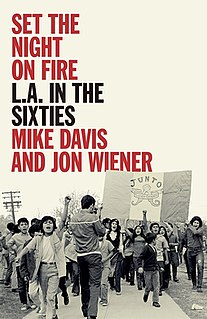 W
WSet the Night on Fire: L.A. in the Sixties is a best-selling book by Mike Davis and Jon Wiener about Los Angeles in the 1960s. The authors combine archival research and personal interviews with their own experiences in the civil rights and anti-war movements to tell the social history or, as the authors term it, "movement history" of this transformative decade. The book's purpose is not to present a comprehensive history of 1960s Los Angeles but to dispel the mythology surrounding this era and replace it with the neglected history of the populist social and cultural movements that shifted power away from an entrenched elite and opened up opportunities for radical egalitarian change.
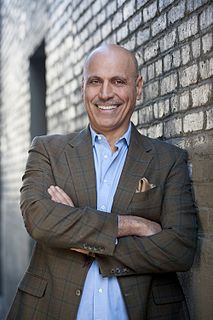 W
WAnas "Andy" Shallal is an Iraqi-American artist, activist and entrepreneur. He is best known as the founder/CEO of the Washington, D.C., area restaurant, bookstore, performance venue Busboys and Poets and local philanthropist. He is also well known for his opposition to the 2003 invasion of Iraq. He was a candidate for the 2014 Washington, D.C. mayoral election.
 W
WCurtis Sliwa is an American activist, radio talk show host and founder and chief executive officer of the Guardian Angels, a nonprofit organization for unarmed crime prevention. Sliwa was the Republican nominee for the 2021 New York City mayoral election, which he lost to Brooklyn Borough President Eric Adams.
 W
WA smart mob is a group whose coordination and communication abilities have been empowered by digital communication technologies. Smart mobs are particularly known for their ability to mobilize quickly.
 W
WSocial and behavior change communication (SBCC), often also only "BCC" or "Communication for Development (C4D)" is an interactive process of any intervention with individuals, group or community to develop communication strategies to promote positive behaviors which are appropriate to their settings and thereby solving the world's most pressing health problems. This in turn provides a supportive environment which will enable people to initiate, sustain and maintain positive and desirable behavior outcomes.
 W
WStop The Killing KC is a community improvement organization in Kansas City, Missouri patterned after "stop the violence/stop the killing" movements in other large American cities, urged since 1985 by Minister Louis Farrakhan of the Nation of Islam movement, and drawing on lessons learned in past decades by many other community improvement organizations such as urban development programs in various U.S. Cities and evangelical or social outreach programs of various churches, religions or groups.
 W
WTax resistance is the refusal to pay tax because of opposition to the government that is imposing the tax, or to government policy, or as opposition to taxation in itself. Tax resistance is a form of direct action and, if in violation of the tax regulations, also a form of civil disobedience.
 W
WRecy Taylor was an African-American woman from Abbeville in Henry County, Alabama. She was born and raised in a sharecropping family in the Jim Crow era Southern United States. Taylor's refusal to remain silent about her rape by white men led to organizing in the African-American community for justice and civil rights.
 W
WTwicket was a village cricket match, streamed world-wide on the Internet on Easter Monday, 25 April 2011, with the intention of highlighting the need for high-capacity upstream broadband to enable community content provision. This innovative exercise—claimed to be a world first—caught media attention, making BBC television news, BBC Radio London, TalkSport, Radio New Zealand; and being written about by The Guardian, The Observer and Metro and mentioned on Twitter by Stephen Fry, the BBC's Rory Cellan-Jones and Jonathan Agnew.